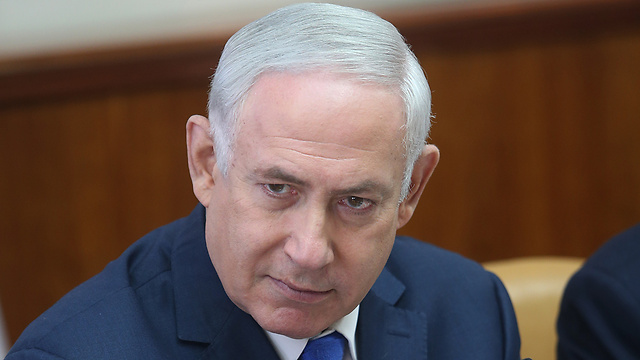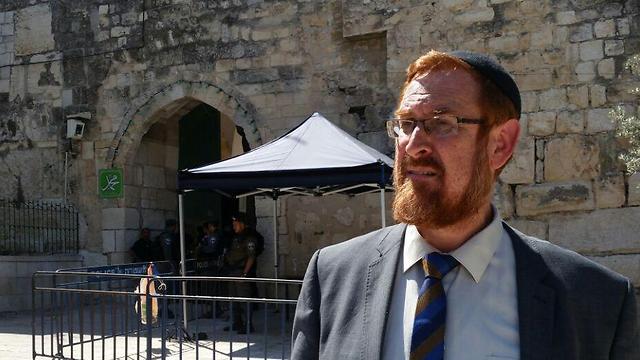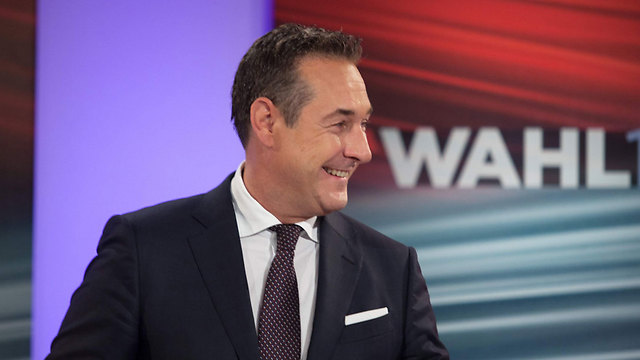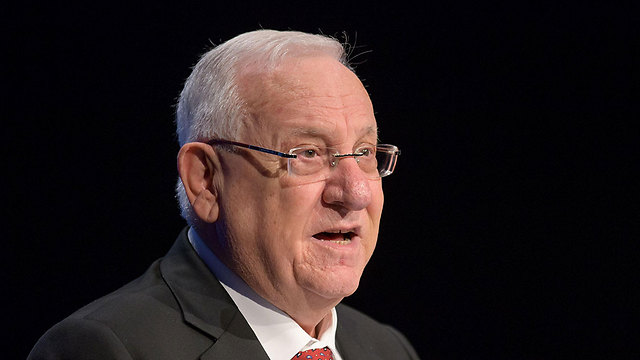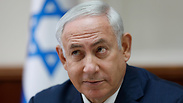

Israelis await Netanyahu's reaction to Austria's far-right surge
President Rivlin expresses unease with members of the Israeli Right seeking to forge alliances with far-right parties in Europe, particularly Heinz-Christian Strache, whose support soared in Austrian election; 'Political leaders who support racist notions, neo-Nazis and anti-Semites, aren't welcome in Israel,' he says; MK Yehuda Glick urges Strache to implement pledge to move embassy to Jerusalem.
“Heinz Strache’s FPO is a party with clear anti-Semitic characteristics even though it tries to hide them,” determined state officials in a report obtained by Ynet.
With the rise of 31-year-old Kurz, and a possible assembling of a coalition composed of the far-right party, spectators are waiting to see whether Israel will stage a repeat return of its ambassador from Vienna, which it did in 2000 with the rise of the extreme Right.
Despite fears surrounding Strache’s views on Jews and Austria’s recent past as a collaborator with Adolf Hitler’s Nazi Germany, Israeli officials on the political Right insist he is pro-Israel, much like other strands of the Right in Europe, which they argue have shifted their support toward Israel and been elected primarily on an anti-immigration platform.
According to those officials, it would be a grave mistake to lock horns with parties on the Right who see Israel as an ally.
Likud MK Yehuda Glick, for example, met with Strache last June, with the Austrian politician putting in writing a firm commitment to moving the Austrian embassy to Jerusalem in the event his party emerges victorious in the next elections.
“Strache told me he believes in the right of the State to build in all parts of the Land of Israel. I praise Mr. Strache for his achievements in the elections as the first senior leader in Europe to commit to moving the embassy,” said Glick following Strache’s huge climb in popularity.
Glick added that he expected to see Strache make good on his pledge if he and Kurz join forces.
By contrast, President Reuven Rivlin leveled criticism against groups on the Israeli Right, including members of his own Likud party, who appeared to be aligning themselves with what are considered by some as inherently anti-Semitic parties.
Rivlin lamented the fact some had in the past invited Strache to visit Israel in direct contravention of the official stance of the Foreign Ministry.
“Sometimes I am amazed at what seems to be our own eccentric connection to the voices of the extreme right in Europe,” Rivlin said during the closing ceremony of Holocaust Remembrance Day last year.
“A few weeks ago, Christian Strache visited Israel, the leader of an Austrian party which brazenly calls itself the ‘Freedom Party.’ He didn’t come here for a courtesy visit or for a tour, but rather at an official invitation of representatives in the Israeli political world, and unfortunately he is not the only one,” Rivlin continued.
“Different officials are trying to forge alliances and connections with parties and groups who hate foreigners and with anti-Semites who appear to support Israel,” he said before warning of the responsibilities assigned to descendents of Holocaust survivors.
“We, as the generation close to the Holocaust, must be clear: No interest in the world will justify an infamous alliance with groups and officials who don’t recognize their responsibility for the crimes of the Holocaust, whose activities are dedicated to silencing (that responsibility) and whose vision seeks to execute it once again against all foreigners, refugees or immigrants,” Rivlin stated.
“Political leaders and national leaders who support racist notions, neo-Nazis and anti-Semites, will not be able to be welcome guests here in Israel.”
In September, Netanyahu told German Chancellor Angela Merkel Israel was concerned by a rise in anti-Semitism after a right-wing nationalist party won seats in Berlin's parliament.














